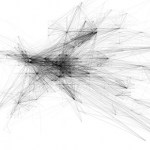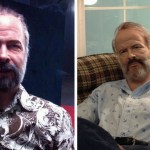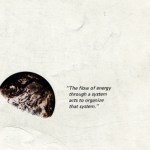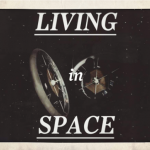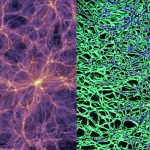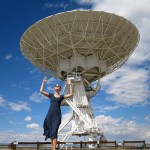systems
If there is anything that the past few decades of research and study of major global challenges tells us, it is that truly effective solutions to sustainability challenges require truly integrated approaches across disciplines, fields of study, data sets, and institutions. We are not going to solve 21st century global problems with 20th century tools.
The planet is faced with a wide range of regional and global threats: air and water pollution, loss of biodiversity, a rapidly changing climate and new risks from extreme weather events, energy and food security, conflicts over resources…
William Gibson, first in his novel Burning Chrome and then later in the seminal Neuromancer, both coined and defined "cyberspace" as "a consensual hallucination experienced daily by billions of legitimate operators." His novels predate the universal adoption of the World Wide Web as a communication matrix, and his psychedelic fantasy of cyberspace–a kind of semantic space navigated by users in virtual-reality, where information takes form as navigable structures–is not quite (yet) our web, but he was correct in his estimation of the network as a hallucination.
Most of us know, on some…
Last week, I wrote a piece for Motherboard about an android version of the science fiction writer Philip K. Dick. The story of the android is truly surreal, stranger than even Dick's flipped-out fiction, and I recommend you pop over to Motherboard and mainline it for yourselves. For the piece, I interviewed the lead programmer on the first version of the PKD Android, Dr. Andrew Olney. Aside from bringing science fiction legends back from the dead, Olney is an Assistant Professor in the Department of Psychology at the University of Memphis and Associate Director of the same university's…
A couple of months ago, I wrote a piece here on Universe exploring the ideas of the futurist Gerard K. O'Neill, who designed far-out but ultimately quite pragmatic environments for human habitation in space in the mid-1970s. In that article, I touched briefly on the notion of the "Overview Effect," a phrase coined by the writer Frank White to describe the profound insight -- characterized by a sudden awareness of life's interconnectedness and the frailty of our planet -- experienced by astronauts gazing down at the Earth from space.
Frank White is the author of The Overview Effect: Space…
In the mid-1970s, the U.S. State Department prohibited the internal use of the term "space colony," due to the global bad reputation of colonialism. Instead, the government opted for "space settlement." Of course, as Stewart Brand pointed out at the time, the last thing you do in space is settle. Quite the opposite! Making the decision to explore space -- and live there -- is just about the most unsettled act a human can commit.
There have always been two camps on this issue. First, the unsettled, like Brand: the science-fiction aficionados, capitalists, rocketry geeks, macrocosmic thinkers,…
Mushrooms and their mycelium are quiet allies that are essential for our healthy existence. They are enigmatic, have a sense of humor, and socially as well as spiritually, bond together all that admire them. They have much to teach us.
-Paul Stamets
If the ego is not regularly and repeatedly dissolved in the unbounded hyperspace of the Transcendent Other, there will always be slow drift away from the sense of self a part of nature's larger whole.
-Terrence McKenna
A few weeks ago, I was sitting at my kitchen table, having coffee, when I suddenly noticed a new development in my…
The author, dishing.
To get to the National Radio Telescope Observatory, you have to be committed.
Well, first, you have to be in New Mexico -- about an hour's drive south of Albuquerque, in the plains of San Augustin, to be precise, a Pleistocene lakebed bordered by the northern end of the Chihuahuan Desert and dotted with arid shrubs. Despite being some 6,970 feet above sea level, it feels like the basement of the world, wide and flat and under the massive Southwestern sky. Driving to the Observatory, the home of the famous "Very Large Array" of radio telescopes, is an exercise in…
Readers, help me sort out an egregious detail of astronomical lore.
The most common method of classifying stars -- Harvard Spectral Classification -- was thought up by one of the most famous female astronomers of all time, Annie Jump Cannon. Adapted from a cumbersome older method which sorted stars into 22 alphabetical categories of observable hydrogen in their spectra, the Cannon method orders stars from hottest to coldest. This, despite being functional and elegant, left her (and us) with an unpronounceable acronym: OBAFGKM. With the recent addition of two colder categories of stars, the…
One of Buckminster Fuller's most interesting conceits was his dislike of specialization, which he likened to a kind of intellectual prison, restraining "bright" people from truly understanding the complex, and general, systems of which they were a part. After all, he argued, what causes extinction in the animal kingdom? Overspecialization. Of course, it's logical, and it's s problem we see over and over again in human history, from the Industrial Revolution displacing specialized factory workers to the often daunting gap of comprehension between the social and "hard" sciences. As soon as we…
